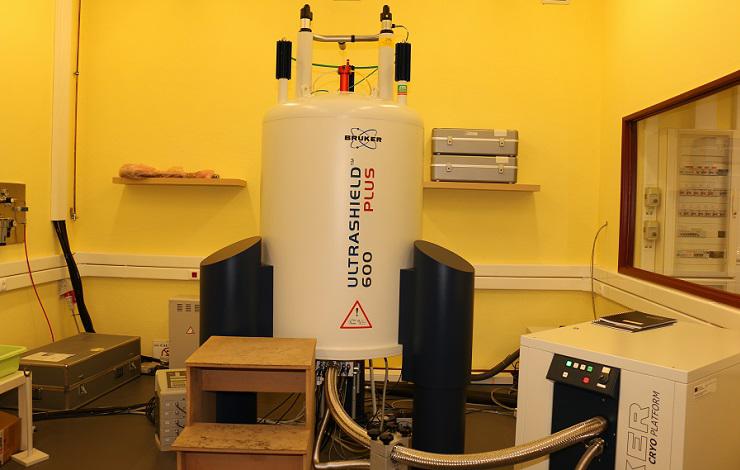05-05-2017

The Portuguese Nuclear Magnetic Resonance Network (PTNMR) was awarded 4,8 million euros as a result of a recent call to support Research Infrastructure (RI) projects included in the Portuguese Roadmap of Research Infrastructures. The funding will support highly qualified human resources and new equipment to carry out advanced research on catalytic processes, smart materials, biomedical devices or pharmaceutical drugs, a key factor for establishing leading industries in emergent areas (Life Sciences, Materials, Nanotechnologies and Nanosciences).
Coordinated by Eurico Cabrita, researcher at UCIBIO, in FCT NOVA, PTNMR is a RI distributed by 4 regions (North, Center, Lisbon and Madeira) joining several academic institutions: Faculdade de Ciências e Tecnologia (FCT NOVA), Instituto de Tecnologia Química e Biológica António Xavier (ITQB NOVA), Instituto Superior Técnico (IST), Universidade da Beira Interior (UBI), Universidade da Madeira (UMa), Universidade de Aveiro (UA), Universidade de Coimbra (UC) and Universidade do Minho (UM).
Eurico Cabrita explains that “the continuous growth of knowledge and innovation in new and advanced materials has been powered by the possibility to operate at the nanometre scale, observing, manipulating and designing, atom by atom, increasingly complex materials with specific properties tailored for specific applications. The rate at which new products are developed and societal challenges met, is closely linked to our ability to characterise these materials”.
Nuclear Magnetic Resonance (NMR) encompasses a plethora of methods and techniques of characterization of advanced organic, inorganic and hybrid (including biological) materials, in the solid- and liquid-states, being crucial to the elucidation of their structure and molecular dynamics and, thus, to the understanding of their properties and assessment of potential applications.
PTNMR mission is to provide scientific support for R&D activities in all scientific areas that require advanced characterization of materials (routine analytical services, access to spectrometers, scientific and technical assistance), foster collaborative work between industry and academia, organize and support advanced training activities.
The project was awarded by Portugal 2020, a partnership agreement signed by Portugal and the European Commission, that gathers the action of 5 European Structural and Investment Funds - ERDF, Cohesion Fund, ESF, EAFRD and EMFF - in which the programming principles are set out to mark the economic, social and territorial development policy to be promoted in Portugal between 2014 and 2020. This project is co-financed by the State Budget.